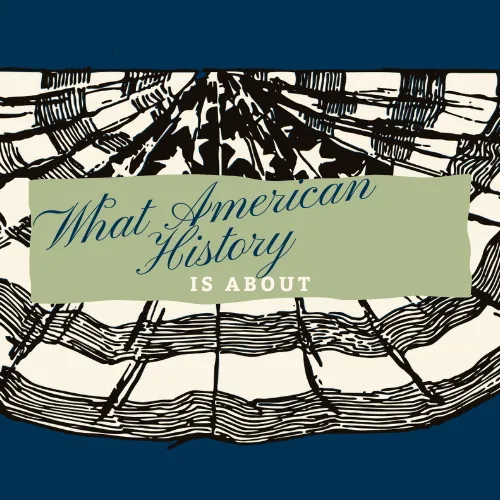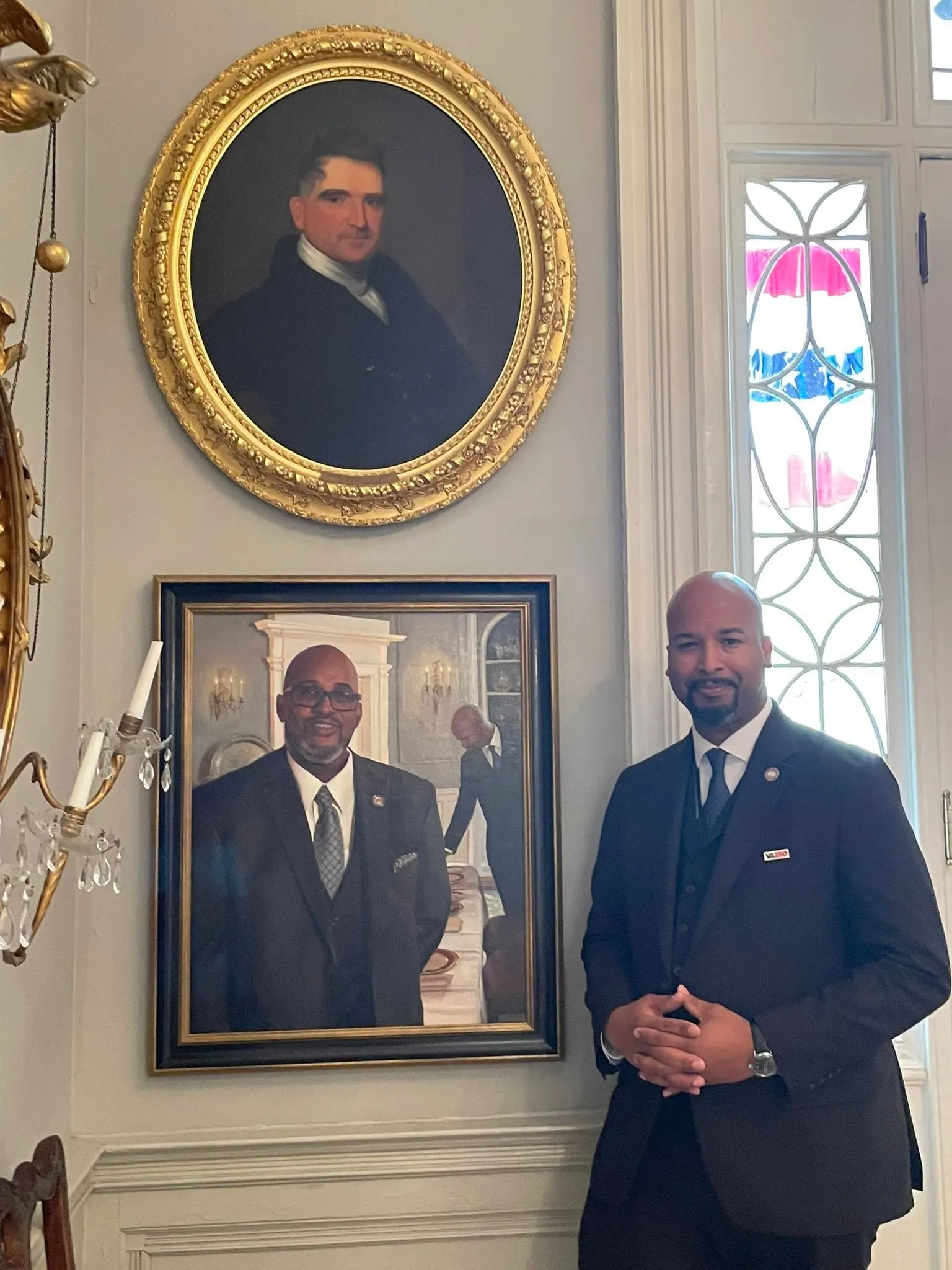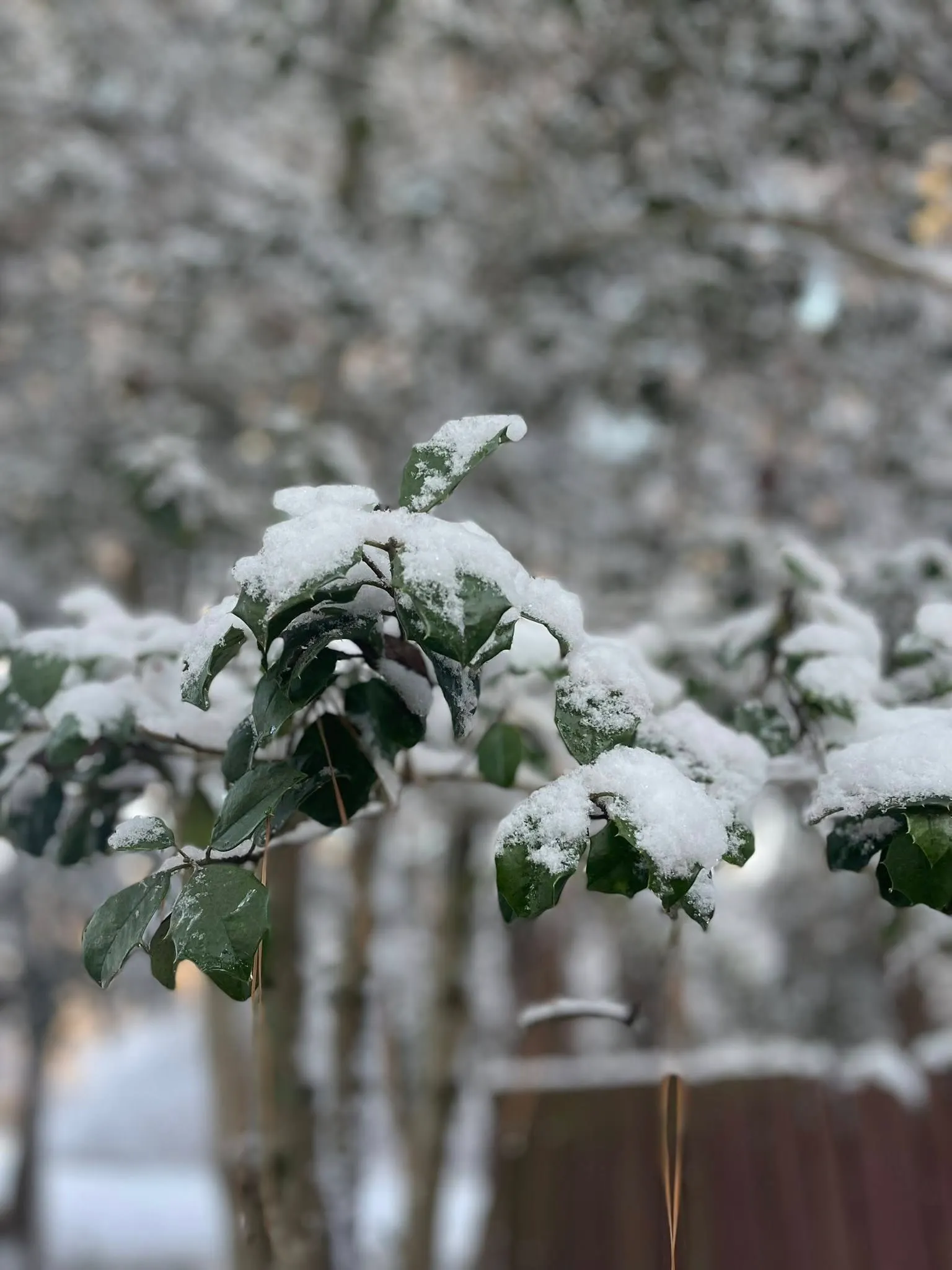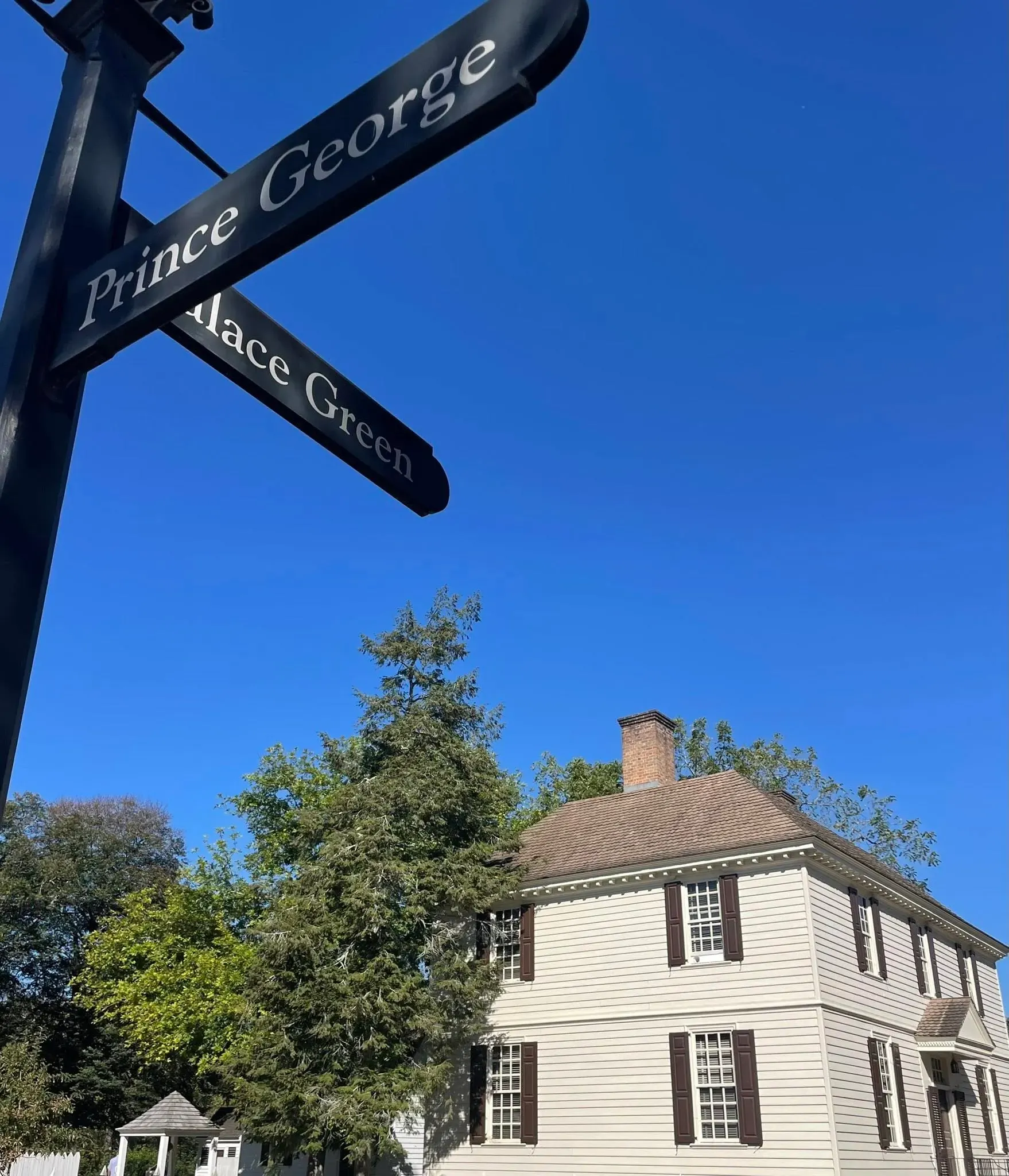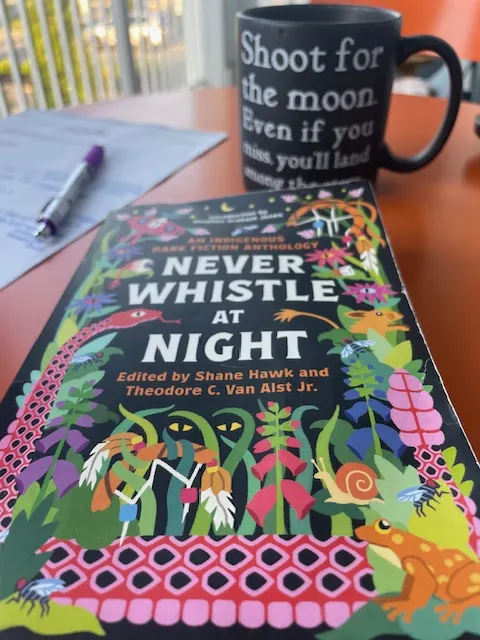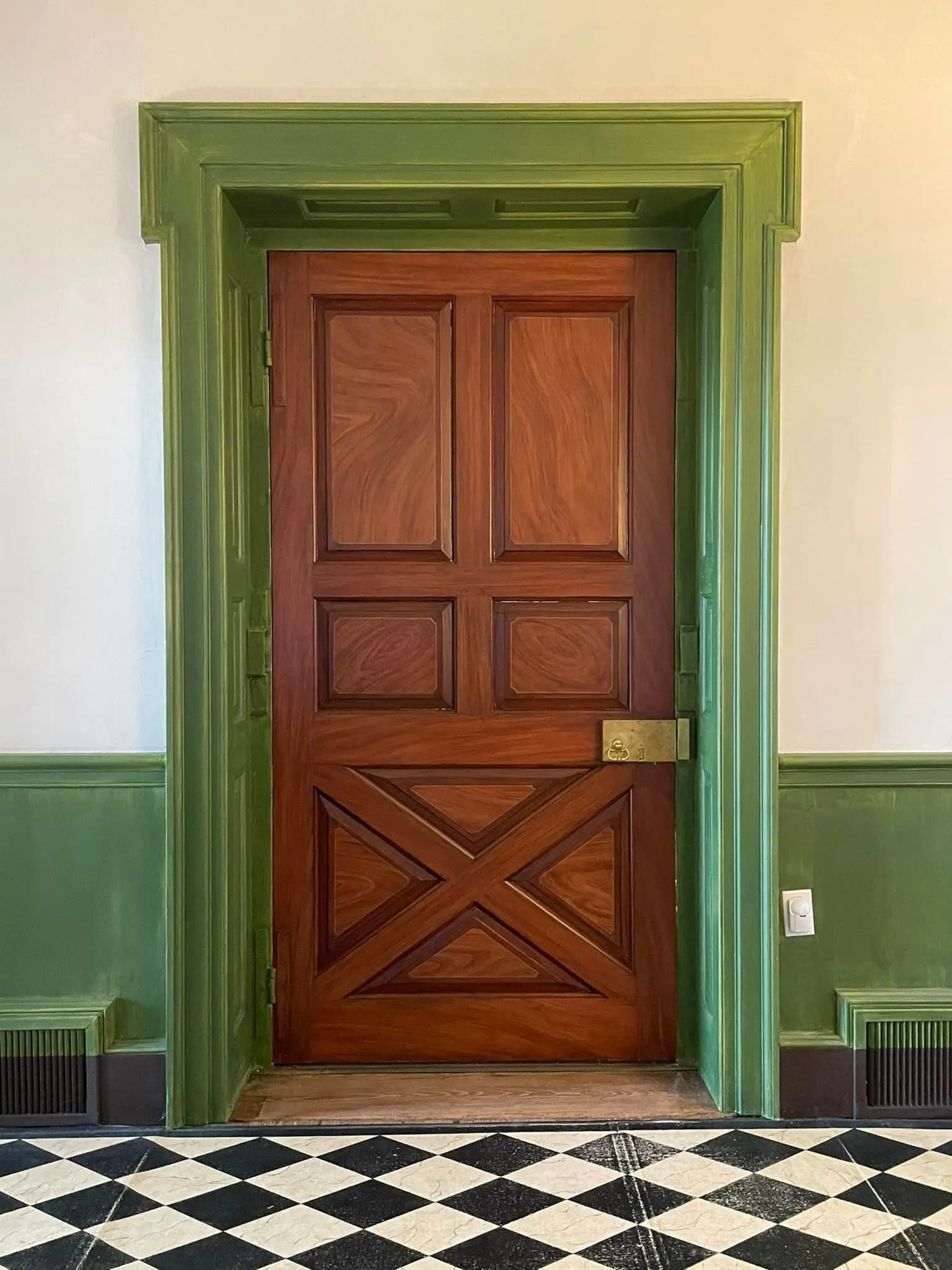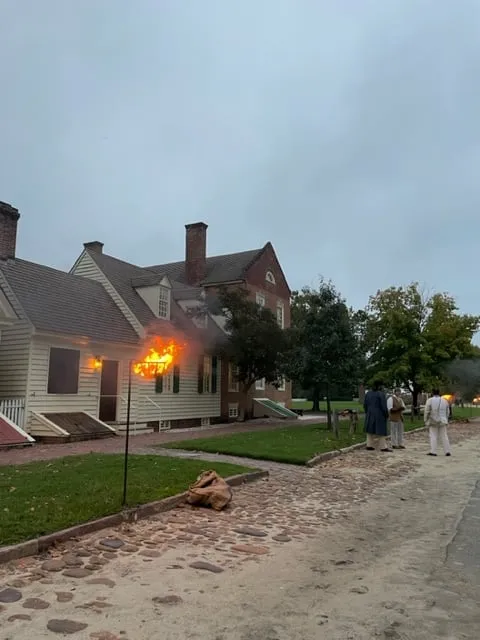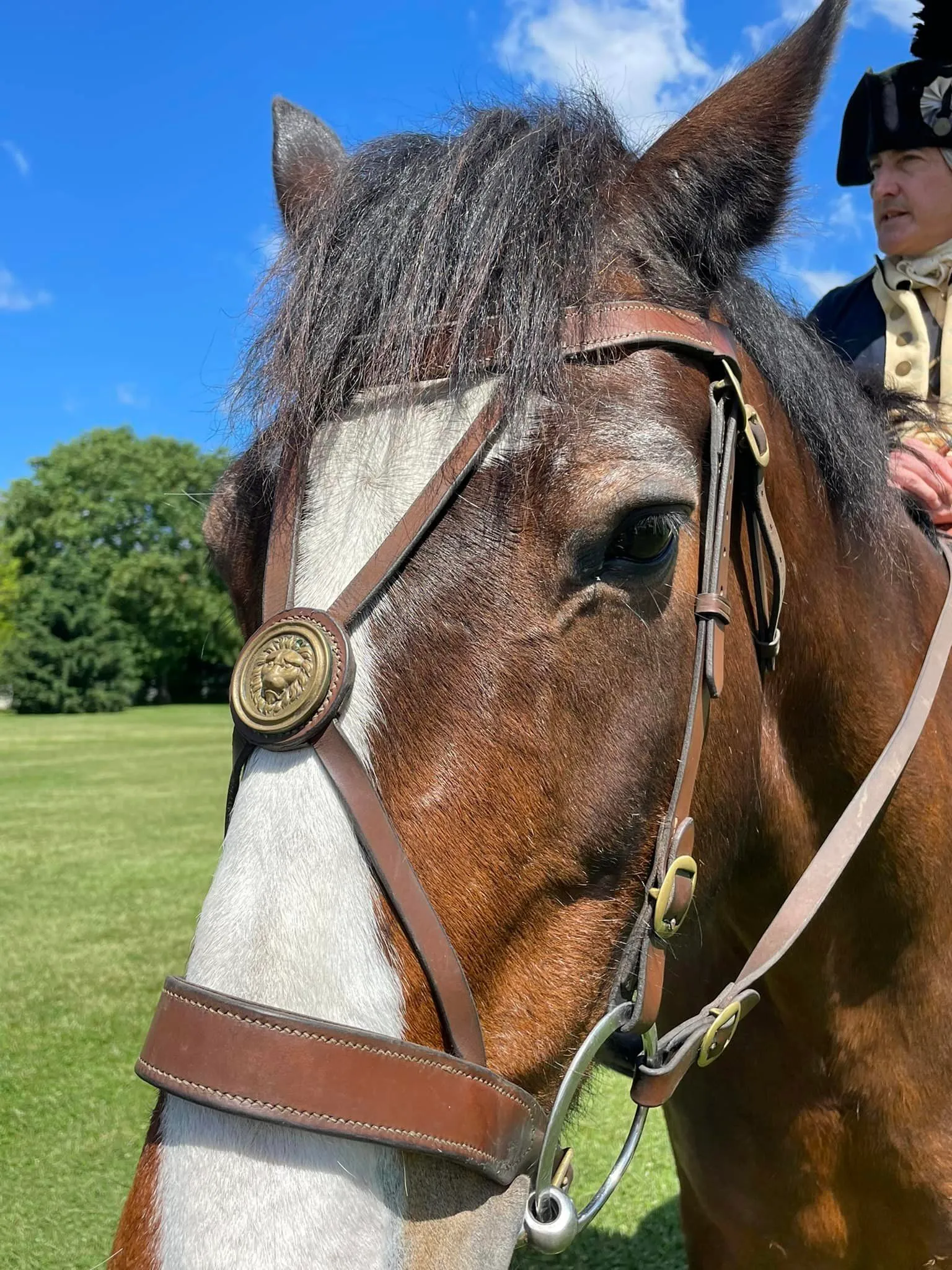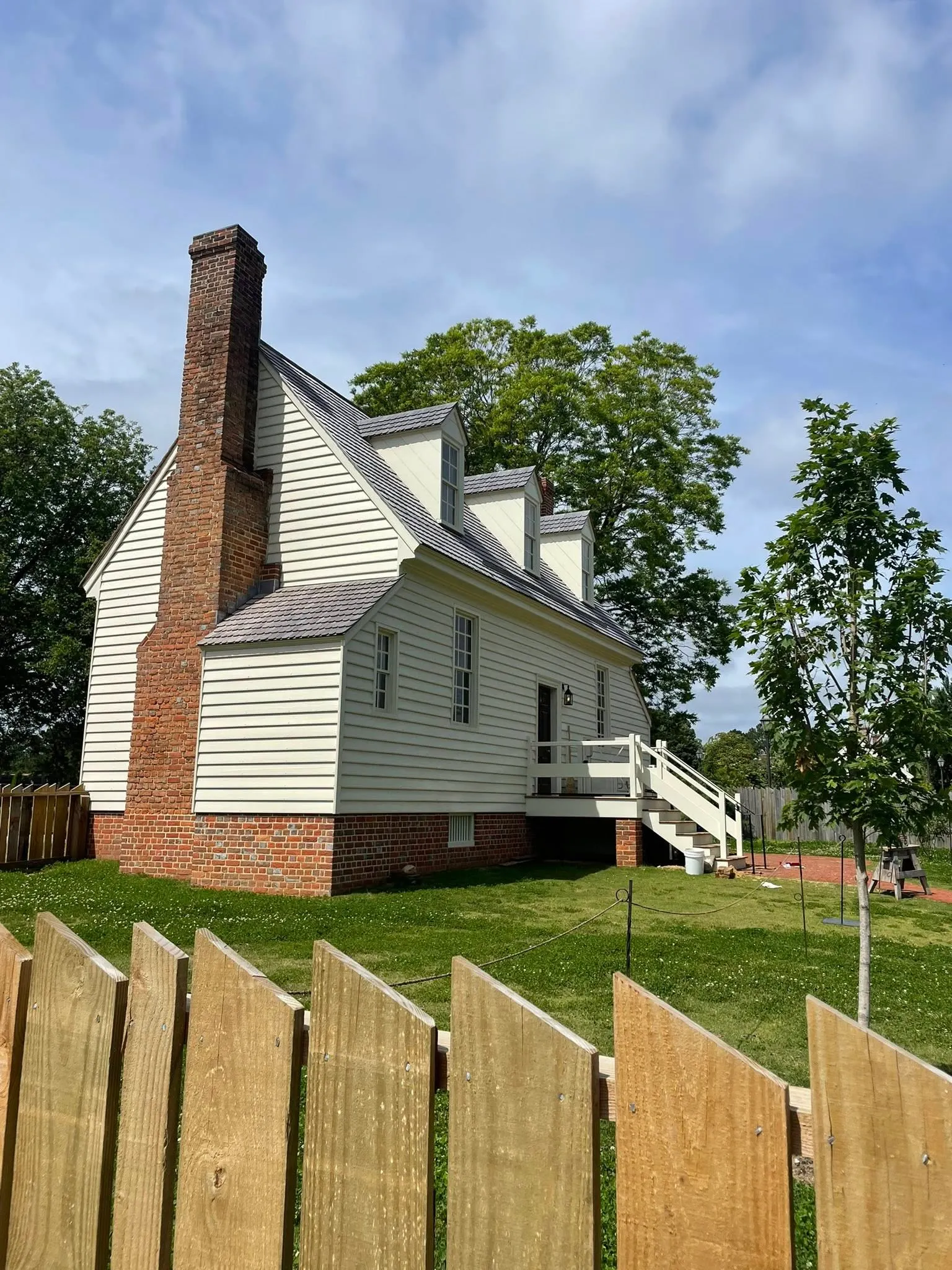The Must-Read Letters and Journal of a Revolution-Era Educator in Virginia: Philip Vickers Fithian
My introduction to Philip Vickers Fithian
I wandered out to Nomini Hall while visiting the Northern Neck of Virginia. I really wanted to see the place Robert Carter III lived. And the 'history-fates' were smiling on me because I met his descendent Thomas Lee Arnest.
Serendipitous for sure- as Mr. Arnest was not only willing and gracious, but excited to share the history of his family and his home with me. I got to see the land I was standing on with perspective.
I got perspective on it all: the site where the original home stood, the Carter family graveyard, and equally important: the burial ground of the enslaved being preserved and revived through Carter family, descendants of the enslaved who labored at Nomini, and their local church.
Before I left, Mr. Arnest urged me to read a book.
The full title:
The Journal and Letters of Philip Vickers Fithian, A Plantation Tutor of The Old Dominion 1773-1774 edited with an Introduction, by Hunter Dickinson Farish.
That plantation was Robert Carter III's Nomini Hall.
So I hit the Williamsburg Regional Library I love so much, dug into the dusty upstairs stacks, and voila. I found Philip Vickers Fithian's masterpiece... his daily recordings of life as a Virginia tutor on the brink of our American Revolutionary War.
And now, I have perspective I couldn't have imagined.
RELATED: Click here to learn more about Mr. Arnest and his ancestor's legacy through his "deed of gift" here.
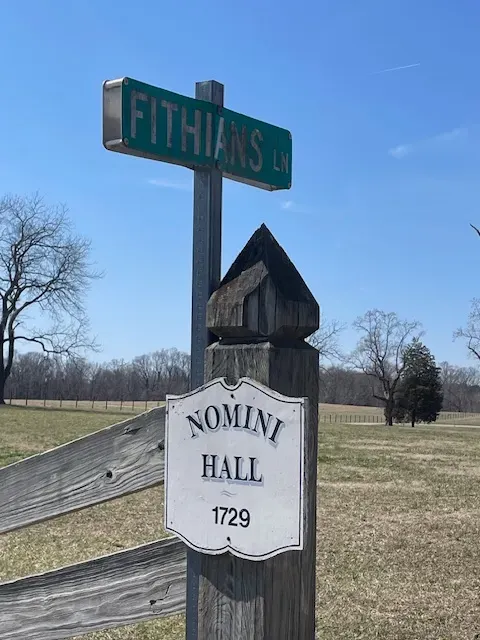
The sign I found Nomini Hall, March 2025
Necessary disclaimer: As a blogger, I use affiliate links sometimes! I may receive commission from purchases I share; it does not change your price but sometimes you might get a discount.
The book's organization, structure, and contents.
A good preface and introduction.
Who needs a biography? Give me a solid editor's preface and introduction to first-person writing any day. I want to read the letters. The diary and journal entries. The account books, the newspaper ads...
This book explains Philiip Vickers Fithian's life, the moment in history, and how his writings survived him incredibly well. There are even occasional sketches to bring the words to life.
Philip Vickers Fithian uses dashes in his journal entries.
One thing I respect about this book is the authenticity. Yes, it can be difficult at times because of the long paragraphs and the way Fithian switches topics with a simple dash- but overall it's an easy read.
Once you get going and into the cadence of his writing, Fithian's style is easy to pick up in my opinion. Like Elizabeth Keckley's memoir, I'm surprised by how conversational and uncomplicated the actual text is.
The citations, notes, and index.
What might be my favorite bit in a book of compiled writing? The explanations.
Editor Farish does an outstanding job of explaining the people and places (as well as events and cultural references) at the back of the book. The guesswork is completely removed from your experience with a superb index to cross-reference it all.
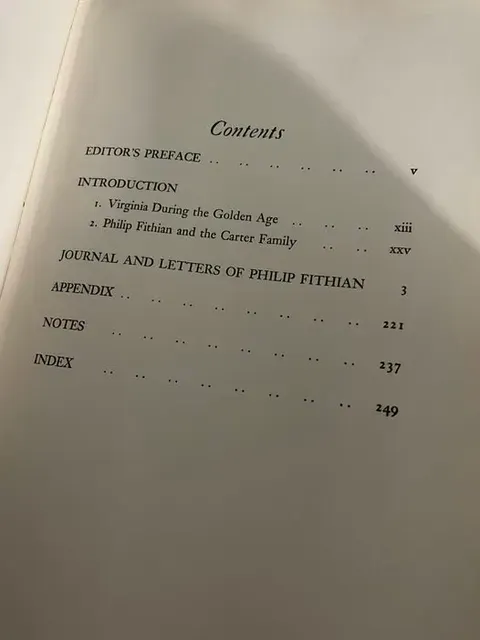
What I learned about daily life in Virginia.
Maybe it was because Fithian was a Princeton graduate who grew up in New Jersey, but the "outsider" perspective drives home the differences across the colonies.
I've often heard it referenced, when discussing the formation of our United States, how very different each British colony was from one another. Even described as separate "countries" in common terminology.
For example differences are described in the currency (and value of both products and services). In fact, Fithian records what seems to be every expense of his. Whether he is "tipping" for a service or purchasing household items, he shares the amount spent.
Then there is the culture. In context, he talks about:
- the warnings of friends and family on his behavior and the impact of those he'll encounter in Virginia
- his advice to John Peck, who will replace him as Nomini Hall's tutor in the fall of 1774
- traditions and customs from dining to clothing, to church and transportation, to commerce and agriculture, to treatment of the enslaved
- the climate, the land- in fact, he consistently records the weather (which I'm finding common in journals and diaries of the period) as well as details on crops and blooms, but also: he painstakingly describes the topography and geography, as well as structures and inhabitants (yes, that means livestock, not just humans!)
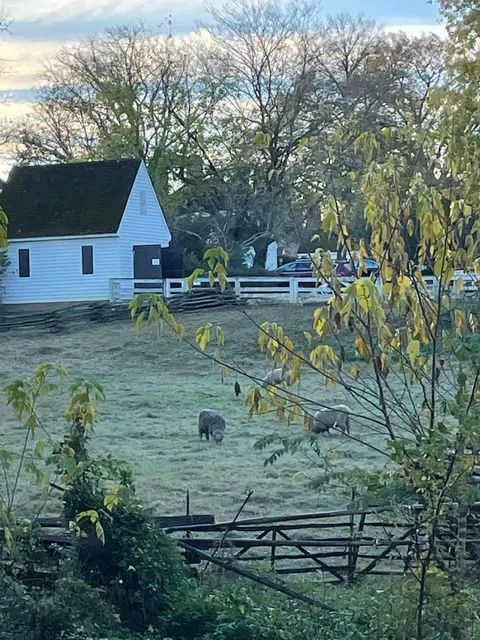
Sheep behind Robert Carter III's townhouse in Williamsburg, Virginia
What I learned about the Carter family.
Robert Carter III was pretty radical in the end. A Virginian to the core, an American patriot, and ultimately a man who saw the value of liberty for all humans. He took John Locke's position to heart (you know- the bit of the Declaration that pulls the sentiment "all men are created equal").
The "deed of gift" was a massive action I initially learned about in Colonial Williamsburg (CW). Knowing it exists almost humanizes Carter. But reading Fithian's descriptions of his family truly does the trick.
For example:
- his wife Frances Ann Tasker Carter took to her room during thunderstorms
- his son Bob is "volatile and unsettled in his temper"
- his son Ben loves "horses over everything"
- his daughter Fanny is the "Flower in the Family" resembling her elegant mother
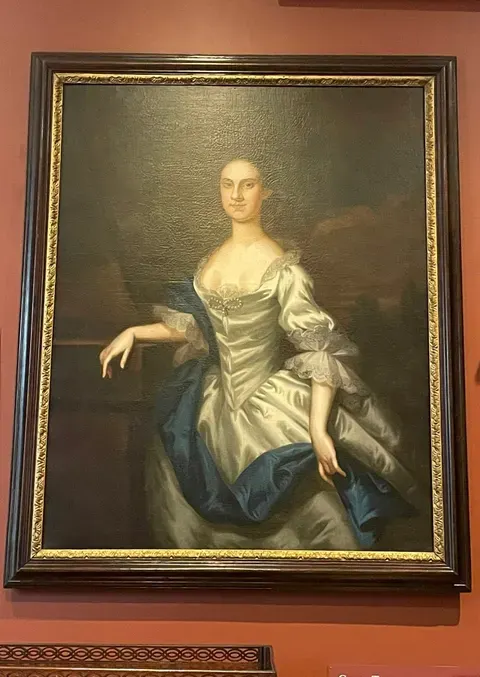
Portrait of Frances Ann Tasker Carter, free Art Museums of CW
What I learned about America at that moment in our history.
As I study 18th century history, one thing is clear: humans were always human. Decisions, fears, family-- all of these things are vital to understanding what happened on the eve of our Revolutionary War.
I'm continuously reminded by those that have dug deeper into it than I, how pivotal the first half of the 1770s were to events in 1776.
Reading this book focused on 1773-1774 drives these insights home. The people whose names I've heard are mentioned as part of day-to-day events in Fithian's life at Nomini Hall.
Richard Henry Lee and several family members [even the Lee home of Stratford Hall itself], George Washington's brother John Augustine Washington, John Tayloe of Mt. Airy, and Virginia's Royal Governor John Murray, Earl of Dunmore, are all dropped into the pages of this book.
Mentioned casually, and as the people weaving together the fabric of Fithian's Virginia experience. Of his time as a tutor living amongst the men and women of Virginia's Northern Neck, specifically in Westmoreland County.
More to dive into from daily life to the Revolutionary War.
As I've mentioned this book around my favorite place to wander daily, Colonial Williamsburg, I've found that it is pretty popular among historians. How have I never heard of it before my encounter at Nomini Hall?
One thing is certain, Fithian's writings have me asking questions and digging deeper. I want to know more about fish feasts, river transportation, tobacco inspection, Colonial culture and objects... all of it.
And by the way, Ken Burns and his team agreed on the value of Fithian's writings as he is mentioned (as he should be!) on their epic documentary: The American Revolution. This note is a November, 2025 update!
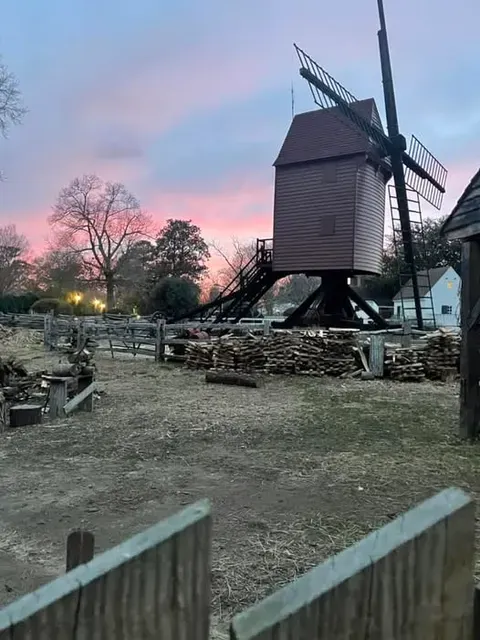
Ewing Field (aka Farmer Ed's lab) in CW, where tobacco is grown
Buy the book.
I won't judge anyone who borrows it from the library, Benjamin Franklin's vision come to life. I use the library for most of my reads! (and often that's using my Kindle).
But books like this one- I need the actual book to flip back and forth in, catch the notes and citations, etc.
Buy the book by clicking here.
And if you visit CW while it's on the calendar, be sure to see All Things Are Possible, and learn more about Robert Carter III's deed of gift. Click here to learn more.
RELATED: If you do visit the area, don't miss the history you're most intrigued by. Book a call with me by clicking here and allow me the honor of creating a curated itinerary for you!
Closing words from history.
The following journal excerpt from the book sums up Fithian from the standpoint of his political views in 1774.
The 2 years prior to adoption of our Declaration of Independence found Americans, then-British subjects, sometimes questioning the thoughts of those they called friend.
In context, Captain Walker was a friend of Robert Carter III who often visited Nomini Hall and is mentioned by Fithian on several occasions. Fithian was even a visitor to Walker's home. Did he go from friend to enemy? Harsh times.
Note: I've broken his long paragraph into several for ease of reading.
Fryday 16 (September 1774)
....Dined with us captain Walker --He threw out several exceeding unpopular Sentiments with regard to the present amazing Disturbances through the Colonies --
One in special I think proper to record because it fixes his Character, & declares him, in Spite of all pretence, an enemy to America --
He asserted that no Officers (at Boston or elsewhere) are obliged, either by Law, or Right, to question or refuse any kind of orders which they receive from their Sovereign, or commanding Officer --
But I account every man, who possesses, & publishes such sentiments in this Crisis of the Fate of a vast Empire, as great an enemy to America at least, as Milton's Arch-Devil was to Mankind!
Are you enjoying the history I'm sharing on this blog? Use my online tip jar and buy me a coffee:
There is a huge practical disclaimer to the content on this blog, which is my way of sharing my excitement and basically journaling online.
1) I am not a historian nor an expert. I will let you know I’m relaying the information as I understand and interpret it. The employees of Colonial Williamsburg base their presentations, work, and responses on historical documents and mainly primary sources.
2) I will update for accuracy as history is constant learning. If you have a question about accuracy, please ask me! I will get the answer from the best source I can find.
3) Photo credit to me, Daphne Reznik, for all photos in this post, unless otherwise credited! All photos are personal photos taken in public access locations or with specific permission.
